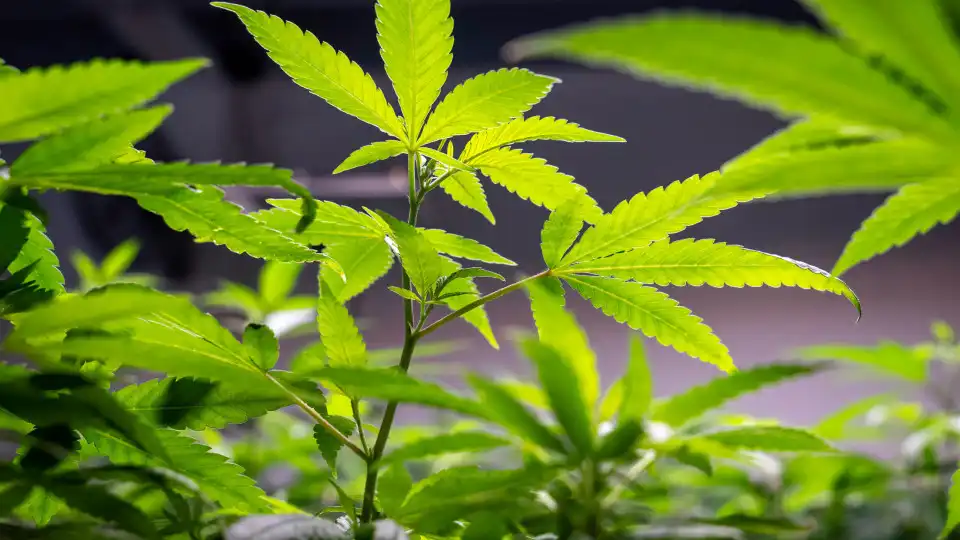Hemp market with room to grow but rules are punishing
The hemp market has room to grow in Portugal, allowing for land regeneration and the capture of carbon dioxide, but the current rules are penalizing the sector, defended Graça Castanho from the cannabis Portugal confraternity.

© Nathalie Jamois/SOPA Images/LightRocket via Getty Images

Economia Cânhamo
"In the specialty literature, 25,000 products and by-products based on hemp are consecrated, since it is a super-plant with tremendous potential, capable of providing an effective, sustainable and biodegradable response to the most polluting and devastating polluting industries in the world, such as fossil fuels, the automobile industry, textiles with synthetic fibers, plastics, cosmetics and civil construction", pointed out, in response to Lusa, the president of the Assembly of the International Cannabis Portugal Brotherhood, Graça Castanho.
According to the also university professor and founder of CannaPortugal and CannaAzores (Cannabis and hemp expo), in mainland Portugal, the raw material resulting from hemp production is mainly intended for the manufacture of textile blocks.
In the Azores, there are now eight producers, in São Miguel, Terceira and Flores, who intend to focus on areas such as civil construction, gastronomy, animal feed, textiles, tea, cosmetics and tobacco.
Even so, she recalled that Portugal is awaiting the possibility of using flowers for the production of therapeutic oils.
"The general population is increasingly open to the solutions that hemp allows. However, it is felt that young people are the most informed and enthusiastic", she said, stressing that in Portugal there is room for the growth of this market.
For Graça Castanho, Portugal is still well below its potential, and it is necessary to produce on a large scale for the "regeneration of land, decontamination of water, decontamination of soil, capture of CO2 [carbon dioxide] and expansion of new sustainability industries".
The largest hemp productions in Portugal are in the Alentejo, in particular, around the Cânhamor block factory.
The International Cannabis Portugal Brotherhood expects a 'boom' in this sector in the coming years, taking into account the number of people interested in hemp production projects. However, he wants the regulation to be "more flexible and adjusted" to the market.
In this context, he considered that hemp producers are being penalized in relation to the others, exemplifying that they cannot apply for carbon credits.
Currently, the restrictions apply, for example, to the dimensions of the land, in addition to the prohibition of the exploitation of flowers and the reuse of seeds from year to year.
"With these constraints, we hardly have raw material for the needs of existing industries. Exporting hemp is, in this scenario, something beyond our reach", he concluded.
In turn, the Portuguese Hemp Association (CannaCasa) regretted that the sector has several of its farmers "with legal proceedings" underway or with their materials seized.
Some of these cases concern the start of production, without specific regulatory approval, which has already been described as an act of protest against the delays in licensing, by the Directorate-General for Food and Veterinary Medicine (DGAV).
CannaCasa also stressed that the restrictions violate principles such as the right to smallholdings or family farming.
"The area limits, the limits relating to cultivation and propagation methods, the restriction on fiber and seeds [...] make this activity very unattractive for small farmers", he insisted.
DGAV's technical clarifications reveal that the production of certified seed for sowing, of the species cannabis sativa, regardless of use, is covered by a decree that regulates its production, control and certification.
Producers are required to be licensed by the DGAV and the varieties must be registered in the Common Catalog of Varieties of Agricultural Species.
In the case of the production of plants for planting, operators must be licensed by Infarmed (National Authority for Medicines and Health Products).
A phytosanitary passport is required for each batch of plants intended to be moved within the EU.
For plants intended for another operator in Portugal, a declaration from the entity receiving the plants, the identification of the license number, the name of the clones and the number of plants, as well as the signature of a responsible technician, are required.
If these are intended for an operator from another Member State, a copy of the export and import certificate and a description of the consignment are required.
According to data from the European Commission, the area dedicated to hemp cultivation in the European Union (EU) increased from 19,970 hectares to 34,960 hectares between 2015 and 2019.
In this period, production increased from 94,120 tons to 152,820 tons, an increase of 62.4%.
France stands out, representing 70% of EU production, followed by the Netherlands (10%) and Austria (4%).
Read Also: Banco de Cabo Verde sobe taxas de juro de referência para 1,5% (Portuguese version)

Descarregue a nossa App gratuita.
Oitavo ano consecutivo Escolha do Consumidor para Imprensa Online e eleito o produto do ano 2024.
* Estudo da e Netsonda, nov. e dez. 2023 produtodoano- pt.com





